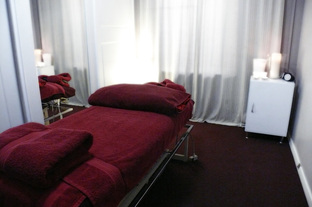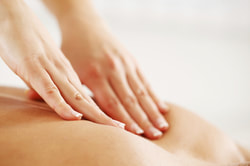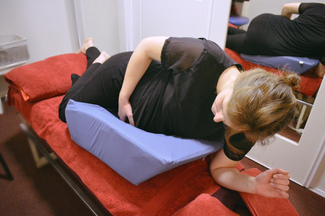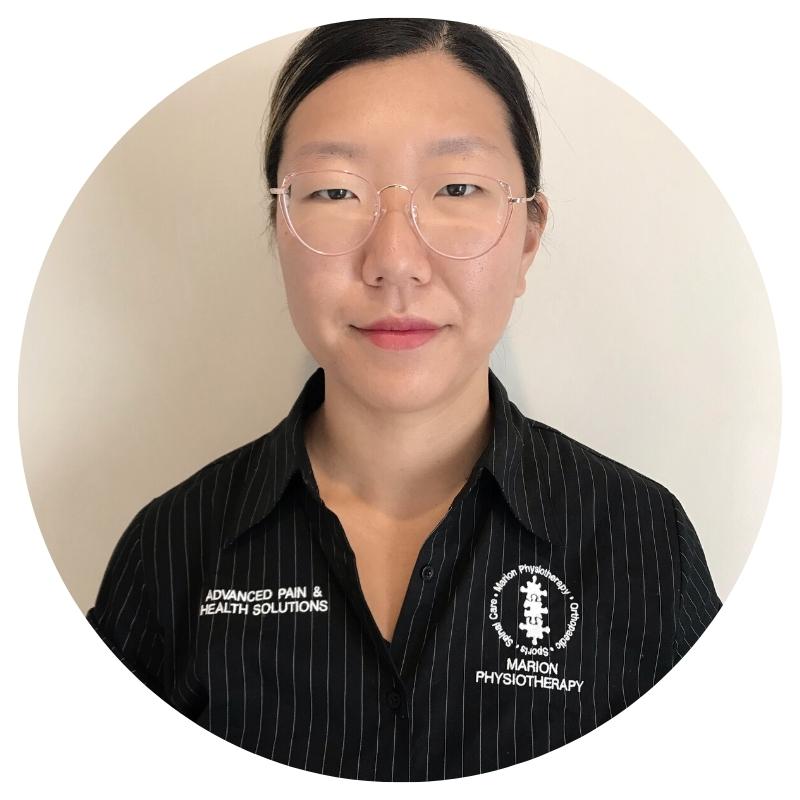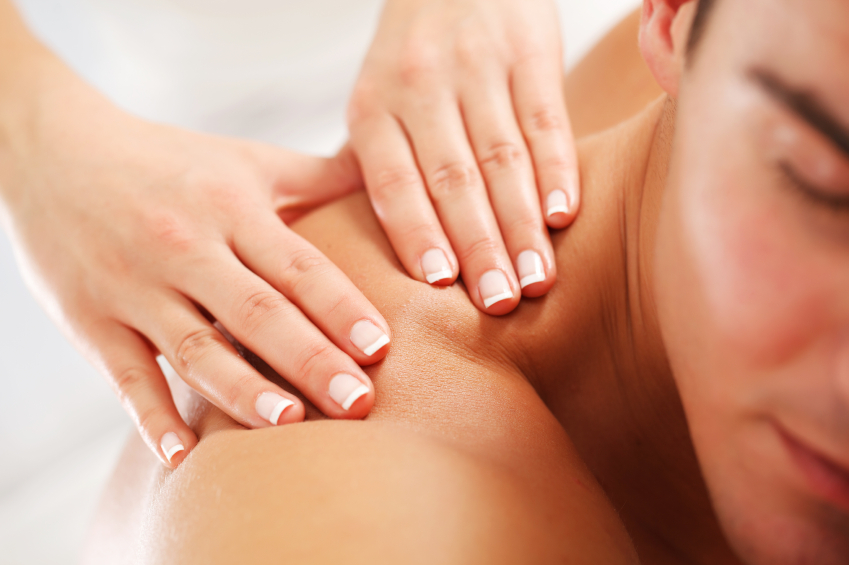Remedial Massage with Yoo
Massage is perhaps one of the oldest healing traditions. It improves circulation which helps speed the recovery of muscles and tissues, as well as reducing muscle tension and encouraging a feeling of relaxation and calm.
Types of massage include:
Remedial Massage - Remedial is a treatment based massage where you will be given a systemic assessment of your muscles, tendons, ligaments, and connective tissues, then treated based on your results.
The treatment is focused to assist your body in rehabilitation, pain relief, injury prevention and restoring the joints range of motion. This is vital to achieve the best outcomes for sports performance, endurance, and strength training, as well as everyday activities.
Remedial massage combines the use of Myofacial, deep tissue, trigger point and positional release techniques to achieve desired outcomes, and the benefits for long term pain relief and injury prevention are significant.
During the session Yoo will communicate with you which muscle she is treating/releasing and why. She will also ask you how you are feeling throughout the massage, and adjust her treatment according to your needs.
Remedial Massage - Remedial is a treatment based massage where you will be given a systemic assessment of your muscles, tendons, ligaments, and connective tissues, then treated based on your results.
The treatment is focused to assist your body in rehabilitation, pain relief, injury prevention and restoring the joints range of motion. This is vital to achieve the best outcomes for sports performance, endurance, and strength training, as well as everyday activities.
Remedial massage combines the use of Myofacial, deep tissue, trigger point and positional release techniques to achieve desired outcomes, and the benefits for long term pain relief and injury prevention are significant.
During the session Yoo will communicate with you which muscle she is treating/releasing and why. She will also ask you how you are feeling throughout the massage, and adjust her treatment according to your needs.
|
Relaxation - This type of massage uses long soothing strokes and gentle stretches. Ideal to help unwind during stressful times, if you are having trouble sleeping or just to pamper yourself; it has a calming effect on the mind and body. Recommended for those who may have never experienced massage before.
Trigger Point - A trigger point is a tight area within muscle tissue that can cause referred pain in other parts of the body. Trigger point massage is designed to alleviate the source of the pain by applying isolated pressure and release while the client participates through deep breathing and helping to identify the exact location of the pain and intensity of discomfort. The tight area of muscle should then start to release therefore alleviating the referred pain. For long standing trigger points repeat application is sometimes required to get the desired release. |
Sports - Ideal for amateur and professional athletes to help keep their muscles supple and injury free. It also helps release tight/injured muscles mid season by encouraging blood and oxygen flow to the area to promote healing. This type of massage is area specific and can use a combination of effleurage, petrissage, range of motion, friction and stretching.
Myofascial - The gentle approach of this technique enables the body's continuous covering of connective tissue to unwind and lengthen. This encourages a longer lasting correction of any muscle release work you may also be having. The fascia houses nerves and blood vessels so it is possible any nerves that may be trapped can be released. As energy and emotions are also held in this connective tissue, you may also have a sense of emotional well-being during or after treatment. Anybody can benefit from myofascial treatment, including sufferers of fibromyalgia, chronic fatigue, low immunity, anxiety or trauma.
Myofascial - The gentle approach of this technique enables the body's continuous covering of connective tissue to unwind and lengthen. This encourages a longer lasting correction of any muscle release work you may also be having. The fascia houses nerves and blood vessels so it is possible any nerves that may be trapped can be released. As energy and emotions are also held in this connective tissue, you may also have a sense of emotional well-being during or after treatment. Anybody can benefit from myofascial treatment, including sufferers of fibromyalgia, chronic fatigue, low immunity, anxiety or trauma.
|
Pregnancy - Massage can help ease the pain and discomfort that may be experienced throughout pregnancy due to the many physical changes the body goes through, such as lower back, neck and shoulder pain. It is also a great way to help relax and pamper mum who may be feeling anxious or stressed leading up to the birth. This massage is can be performed whilst laying on your side, in our massage chair, or we have a special pregnancy pillow so you can safely lay on your stomach (heaven!).
Many women also suffer from muscular tension through their back, neck and shoulders associated with breastfeeding and holding their baby. Massage can help ease this tension and help mum unwind. |
What to expect:
When attending the clinic for the first time you will be asked to complete a form allowing you to select your preferred style of massage and any specific areas you would like Yoo to focus on. Please allow time before your massage to complete this form. Yoo will then discuss this information with you and ask if there are any medical conditions or injuries you would like her to be aware of prior to commencing.
Yoo will then leave the room for you to undress in privacy and direct you on how to lay on the bed. A towel is provided for you to drape over yourself and she will re-enter the room when you are ready.
The room is kept warm and will have dimmed lighting and relaxing music. Yoo will check with you periodically throughout your massage to ask if the pressure she is applying is suitable for you.
After your massage:
Yoo will let you know when the session has finished and will discuss with you how you found the treatment, how you are feeling and the benefit or desire for an additional appointment. She will then leave the room to allow you to dress in privacy.
It is advised that you drink plenty of water after your massage to help flush out any toxins (lactic acid) that may have been released, and to encourage good oxygen flow especially to the areas that have been worked on. This also encourages muscle tissue recovery.
Massages times available with Yoo are 20 minutes, 40 minutes, 60 minutes or 90 minutes
Tuesdays 8:40am - 4:40pm
Wednesdays 11:40pm - 7:40pm
and alt Saturdays 8am - 4pm
Massage vouchers available at reception.
When attending the clinic for the first time you will be asked to complete a form allowing you to select your preferred style of massage and any specific areas you would like Yoo to focus on. Please allow time before your massage to complete this form. Yoo will then discuss this information with you and ask if there are any medical conditions or injuries you would like her to be aware of prior to commencing.
Yoo will then leave the room for you to undress in privacy and direct you on how to lay on the bed. A towel is provided for you to drape over yourself and she will re-enter the room when you are ready.
The room is kept warm and will have dimmed lighting and relaxing music. Yoo will check with you periodically throughout your massage to ask if the pressure she is applying is suitable for you.
After your massage:
Yoo will let you know when the session has finished and will discuss with you how you found the treatment, how you are feeling and the benefit or desire for an additional appointment. She will then leave the room to allow you to dress in privacy.
It is advised that you drink plenty of water after your massage to help flush out any toxins (lactic acid) that may have been released, and to encourage good oxygen flow especially to the areas that have been worked on. This also encourages muscle tissue recovery.
Massages times available with Yoo are 20 minutes, 40 minutes, 60 minutes or 90 minutes
Tuesdays 8:40am - 4:40pm
Wednesdays 11:40pm - 7:40pm
and alt Saturdays 8am - 4pm
Massage vouchers available at reception.
Yoo - Remedial Massage TherapistHaving enjoyed and benefited from the experience of massage so much, Yoo decided she wanted to learn how to provide other people with the amazing experience of massage therapy! So began her journey to becoming a Remedial Massage Therapist and increasing and honing her skills since 2016. Yoo is a member of the Australian Traditional Medicine Society, and has a special focus on remedial massage, incorporating trigger point therapy, deep tissue massage and myofascial release techniques. She enjoys providing flowing, deeply relaxing treatments. Her practice in yoga, sports and dance, has given her a holistic understanding of the alignment and mechanics of the body, helping her to provide more integrated treatments.
Yoo looks forward to helping you achieve greater health and wellbeing through the wonderful health modality of massage. |
Massage with a Physiotherapist
|
Our Physiotherapists are highly trained to know possible contributing factors to your body's aches and pains. They are experts in understanding any pre-existing conditions or injuries you may have.
At the time of your appointment you will be asked if there are any specific areas you would like the Physiotherapist to focus on. Massage times with a Physiotherapist are 20 minutes or 40 minutes. |
